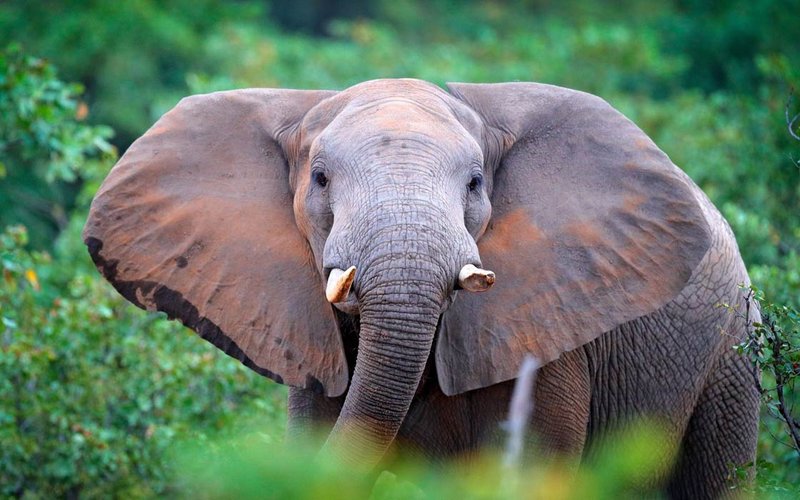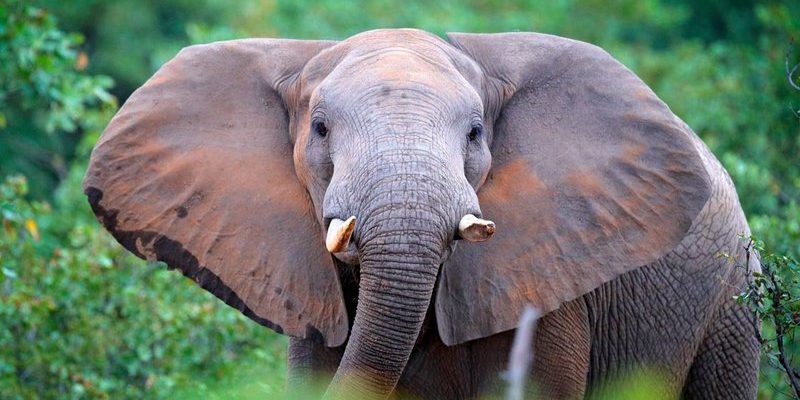
Imagine sitting in a cozy coffee shop, discussing wildlife. You might think of African elephants as the gentle giants of the savannah, but the forest elephant has its own unique set of skills. They navigate thick foliage where their larger relatives might struggle, using their intelligence to adapt to their environment. Their behavior showcases not just survival tactics but also complex social interactions and problem-solving abilities. So, grab your cup of coffee, and let’s dive into the minds of these incredible animals.
The Cognitive World of African Forest Elephants
Understanding the cognitive abilities of African forest elephants can feel like peeling an onion—there are so many layers. These elephants demonstrate intelligence through various behaviors. For example, they can solve problems, use tools, and even display signs of self-awareness.
Research has shown that these elephants can remember the locations of water sources and food, sometimes miles apart. In the wild, they rely on their strong memory to survive, especially when resources are scarce. Think about how we often forget where we parked our cars; in contrast, these elephants navigate their jungle homes with impressive precision.
Moreover, they communicate through a range of vocalizations and even low-frequency sounds that we can’t hear. This is a bit like having a secret language that helps them warn each other of danger or share information about their surroundings. It’s fascinating to think about how complex their social life really is—much like our own!
Social Structures and Relationships
Another interesting aspect of African forest elephants is their social structure. They live in matriarchal herds, often led by a wise older female. This matriarch plays a crucial role in the group’s survival, teaching younger elephants about food sources and how to care for each other.
You might wonder how they handle relationships within these herds. Well, they form strong bonds with each other, often seen touching or nuzzling as a way to reinforce their connections. This behavior is akin to how we hug our friends or family to show love and support. If one elephant is feeling unwell, the others will often stay close, providing comfort and protection.
Even after they leave their families, forest elephants maintain friendships through social networks. Some studies suggest that they can recognize other elephants long after they’ve parted ways. Imagine reconnecting with an old friend you haven’t seen in years—that’s the level of bond these elephants share!
Problem-Solving and Tool Use
One of the most captivating aspects of the African forest elephant’s intelligence is its ability to solve problems and use tools. In the wild, they have been observed using branches to scratch themselves or digging with their tusks to reach water.
Think of it this way: when we use a stick to poke at something out of reach, we’re exhibiting problem-solving skills. Similarly, these elephants assess their environment and figure out ways to make it work for them. This ability to use tools is a clear indicator of advanced cognitive function.
In certain studies, scientists have placed obstacles in front of food sources to see how the elephants would react. To everyone’s amazement, they devised ingenious ways to overcome these hurdles—climbing over, pushing them aside, or even working together to lift heavy objects. This collaboration speaks volumes about their intelligence and social cooperation.
Emotional and Empathetic Behaviors
You might think emotions are a human trait, but African forest elephants showcase a variety of feelings too. They grieve for lost family members, often touching the bones or remains of their deceased with apparent reverence. This behavior suggests they have a sense of loss, similar to how we mourn our loved ones.
Additionally, they display signs of empathy towards one another. When a herd member is distressed, others will rush over, offering support. This response is not merely instinctual—it indicates a deeper understanding and care for their companions.
In many ways, they mirror our own emotional experiences. Whether it’s joy in reunion or sadness in loss, the emotional lives of these elephants are rich and complex, reflecting their high cognitive abilities.
Environmental Adaptations and Intelligence
African forest elephants have evolved to thrive in their unique habitats, showcasing their intelligence in adapting to challenges. Unlike savannah elephants, forest elephants have shorter, straighter tusks, which help them navigate dense vegetation. It’s nature’s way of equipping them for success in their environment.
These adaptations aren’t just physical; their intelligence plays a crucial role in how they interact with their surroundings. For instance, they understand the seasonal changes in their habitat, knowing when to migrate to find food or water. This knowledge is crucial for survival, especially in the changing climate.
Their ability to adapt also extends to their foraging techniques. They’ll often change their diet based on what’s available, demonstrating flexibility that speaks to their intelligence. Imagine being able to adjust your meal plans based on what’s in season—that’s the essence of how these elephants operate!
The Importance of Conservation
Understanding the intelligence and behavior of African forest elephants is essential for their conservation. Sadly, these magnificent creatures face numerous threats, primarily from habitat loss and poaching. By learning more about their cognitive abilities, we can appreciate their role in the ecosystem and advocate for their protection.
Conservation efforts often focus on preserving their habitats, which are critical not just for the elephants but for a variety of other species as well. When we protect these forest ecosystems, we’re also safeguarding the intricate web of life that exists within them.
Moreover, by raising awareness about their intelligence and social structures, we can foster a deeper connection between humans and wildlife. This understanding encourages people to join in conservation efforts and ensures that African forest elephants have a future in their natural habitats.
The African forest elephant is not just a large creature roaming the jungles of Africa; it’s a testament to the power of intelligence and emotion in the animal kingdom. Their problem-solving skills, emotional depth, and social bonds really highlight how complex these animals are.
By appreciating their cognitive abilities and unique behaviors, we can better advocate for their survival. Let’s remember that protecting these gentle giants means preserving a piece of our shared natural heritage. In the end, understanding their intelligence isn’t just an academic exercise—it’s a call to action for all of us to ensure their future.

